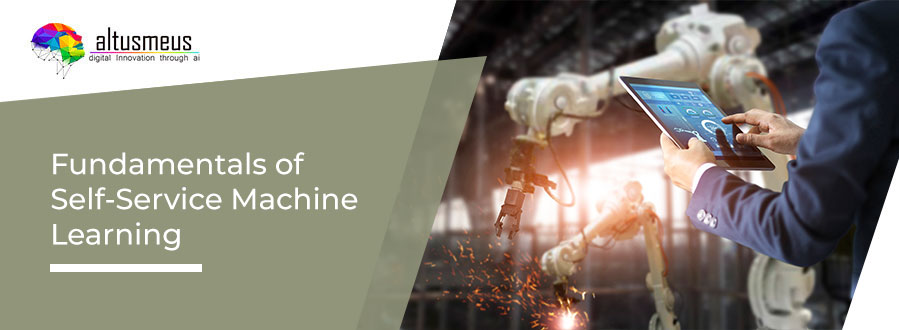There is a lot of hype around self-service machine learning (ML) and for good reason. It has the potential to enable business users to build models without relying on data scientists or IT experts. But what is self-service ML, and how can you make it work for your business?
By the end of this article, you will be ready to start using self-service machine learning to improve your business processes and decision-making.
What Is Self-Service Machine Learning?
Self-service machine learning is a type of artificial intelligence (AI) that allows business users to build and operate machine learning models without the need for help from data scientists or engineers. It is a powerful tool that can help business users make better decisions and improve their operations.
How Does Self-Service Machine Learning Work?
Self-service machine learning works by allowing business users to access machine learning algorithms and tools through a user interface. These tools allow business users to input data, train models, and analyze results.
Self-service machine learning is a growing field, and new platforms and tools are becoming available all the time.
The benefits of self-service machine learning include:
1. Automated Anomaly Detection
Self-service machine learning can be used to automatically detect and isolate abnormal or unexpected data points in a dataset. This can be used for fraud detection, quality control, or other tasks where it is important to identify unusual patterns of behavior.
2. Predicting Future Events
Self-service machine learning can be used to predict future events by using past data to create models that can identify patterns and trends. This can be used to help businesses make better decisions about things like inventory, pricing, and marketing.
3. Personalized Recommendations
Self-service machine learning models can be used to create personalized recommendations for products or services. This can help businesses to increase sales by recommending relevant items to their customers.
4. Fraud Detection
Self-service machine learning models can be used to detect fraudulent behavior, such as credit card fraud or insurance fraud. This can help businesses to reduce the amount of money that is lost to fraud each year.
5. Predictive Maintenance
Self-service machine learning models can be used to predict when a machine is likely to break down. This can help businesses to plan for downtime and ensure that they have enough resources to handle any unexpected issues.
6. Predictive Maintenance
Self-service machine learning models can be used to predict when a particular machine or system is likely to fail. This can help companies to schedule repairs and replacements in advance, preventing costly outages or downtime.
7. Improving Customer Service
Self-service machine learning can be used to improve customer service by using data to identify customer trends and preferences. This can help businesses better understand their customers and provide them with a more personalized experience.
8. Enhancing Product Development
Self-service machine learning can be used to enhance product development by using data to identify customer needs and preferences. This can help businesses create products that are more in line with what
9. Increased Accuracy
Machine learning models built by business users are often more accurate than those built by data scientists or engineers. This is because business users are more familiar with the data and the business process, and they can tailor the models to fit their specific needs.





